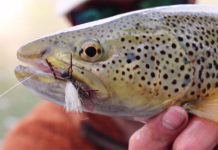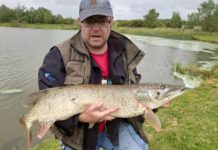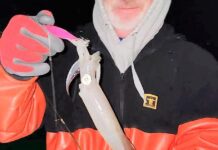This wasn’t Luke Bryan’s first rodeo.
“Am I too backlit? Hold on,” the country star said as he picked up a video call at his home in Nashville. Dressed in a golf shirt and ball cap, sunglasses dangling from a cord around his neck, he stood and moved to a different part of the window-lined room.
“The problem is, if I do it this way, some of my awards get in the frame,” he said, gesturing to a wall hung with gold and platinum plaques. “And I don’t want you to think I’m so … egotistical that I have to do Zoom calls with awards in ’em.”
Bryan, 44, got accustomed to the finer points of remote technology while shooting the latest season of “American Idol,” which suddenly became an at-home production in April thanks to the covid-19 pandemic.
The Leesburg, Ga., native’s latest album “Born Here Live Here Die Here” lives up to its title with down-home tunes about small-town Southern life. But in songs like “What She Wants Tonight,” which rides a sleek R&B groove, the album also continues the sly expansion of country music that Bryan — perhaps the smiliest avatar of the party-hardy bro-country movement of the early 2010s — helped set into motion nearly a decade ago with “Country Girl (Shake It for Me),” his hip-hop-inflected 2011 smash.
“Thirty years ago, when you listened to Randy Travis and all that, everybody was walking down the same street. Now the street is a lot wider,” he said, with room for the adventurous likes of Sam Hunt and Lil Nas X. And despite all those accolades — he has scored more than two dozen No. 1 singles, including the new album’s blithely unburdened “One Margarita,” and been named the Country Music Association’s entertainer of the year twice — Bryan insists he’s still interested in change.
Bryan was supposed to take his latest work on the road in 2020, hitting arenas and amphitheaters as well as the open-air spaces he has played for years on what he calls his Farm Tour. With those plans called off due to the pandemic, he recently used his tour bus for a fly-fishing trip with his two sons and his nephew, whom Bryan and his wife began raising after the deaths of the singer’s sister and brother-in-law.
Q: Do you think of yourself as someone who shaped modern country music?
A: I’m a small-town kid, and somehow I listened to Alan Jackson, N.W.A, the Beastie Boys, Garth Brooks and Heavy D & the Boyz. I think my generation, as far as being a country kid, was one of the first to have these forms of music really start integrating.
Q: So the evolution was inevitable.
A: And “Country Girl (Shake It for Me)” was born strictly for that reason. So was “That’s My Kind of Night.” It’s almost like a touch of a hip-hop song with a guy with a real country voice singing it. But I didn’t know I was gonna open up another avenue. And you know what? There’ll always be people who say I ruined country music. But I was driving home from downtown Nashville yesterday and I heard Kane Brown on pop radio with Swae Lee and Khalid. I’m like, “That’s interesting.”
Q: What would be unexpected from Luke Bryan now?
A: I’m really into (the TV Western series) “Yellowstone,” and the music in “Yellowstone,” it’s Texas music, cowboy music. I’m obviously not a cowboy, but it makes me wonder how I could do a really retro-sounding cowboy song. Or when I listen to the Weeknd, that sounds like Duran Duran to me — totally an ’80s synthesizer. I’m always wondering, “What’s a fun little sound people haven’t heard me do?”
Q: Ideologically, the country audience can be perceived by outsiders as a monolith. Do you see more diversity of thought than is often recognized?
A: Here’s what I know about the country audience: When you lay the right song on them, they all get it the same way. But the stereotype where everybody’s like, “Oh, write a song about guns and America and the troops and veterans, and it’ll be a hit” — I don’t view the country audience like that.
Q: Do you feel free to speak your mind about contentious issues?
A: I’m always gonna walk a smart line, but I’m not scared. Look at “Most People Are Good,” a song I had a couple years ago. It touched on “Love who you love,” and that can be taken a lot of ways. I had a lot of people ask me, “Well, does that mean you want to plant a flag and support the gay and lesbian community?” I’m like, “I’m not saying I’m gonna go fly that flag — but I’m not saying I’m not either.” As you get a higher profile, you do watch your words carefully. And that’s frustrating too.
Q: Because of the way you grew up, you’ve naturally brought elements of Black music into country. But has country gotten better at allowing in actual Black voices?
A: I do see it getting better. I watched Darius (Rucker)’s interview (with the “Today” show) on race, and I have sat up at night after hearing from African American audience members who say they’ve felt uncomfortable at my shows through the years. It’s a delicate conversation, and do I think we may take a little longer in country to have it? Probably. But it’s the conversation we’re having more and more.
Q: Chris Janson and Chase Rice faced widespread criticism after they played concerts with little apparent concern for social distancing. But an act on your level has to think more rigorously about how to return to the road.
A: If I’ve made decisions on not doing shows, it’s because let’s see what we’re truly dealing with. We’re still learning what this virus is every day. It’s all out of whack.
Q: What’s going through your mind when you sing “Build Me a Daddy,” which is about a little kid whose father was a soldier who died?
A: It’s heavy. Through the years I’ve met several Navy SEAL buddies, and I just happened to be around one of these buddies when I got the mix of that song in. Navy SEALS, these guys are programmed to not show emotion. And I played him this song and it truly broke up him up. I think about that.
Q: Your nephew lost his dad. Do you connect the song to events in your own life?
A: Oh, totally. Loss is loss. You know, “Build Me a Daddy,” I didn’t go in there and do 25 vocal takes on it. I think I did four, and there were even some that my engineer was like, “Man, we really can use 95% of this vocal.” That tells me I’ve connected emotionally with the song; I’m really just channeling it.
Credit: Source link





























